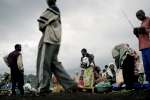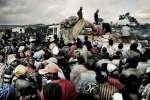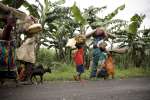Fighting in southern Philippines island displaces more than 120,000
News Stories, 20 March 2015
MANILA, Philippines, March 20 (UNHCR) – Fighting between government forces and armed groups in the southern Philippines island of Mindanao has forced more than 120,000 people to flee their homes since late January, when the conflict flared.
The UN refugee agency said it was worried about the safety of displaced civilians as the conflict spreads into local villages. It expected the number of displaced to increase as the fighting reaches local communities hosting the displaced.
UNHCR and its partners estimate that 13 municipalities in Maguindanao and North Cotabato have been affected in eight weeks of clashes between the state security forces and the Bangsamoro Islamic Freedom Fighters. The internally displaced are sheltering in schools and public buildings. There are also unknown numbers staying with friends or relatives.
Due to the volatile security situation UNHCR cannot access many of the affected areas and relies on information provided by local authorities, civil society organizations and partners.
UNHCR and other UN agencies in Mindanao are working closely with the local authorities to monitor the conditions of displaced people inside and outside evacuation centres. "We have provided some blankets, jerry cans, sleeping mats, mosquito nets and plastic sheets, but more aid is needed urgently," said spokesman Babar Baloch in Geneva.
The refugee agency is particularly concerned about the safety of civilians, including women and children who are caught up in the conflict areas and could be exposed to exploitation and abuse, given their lack of income and community protection. The limited provision of food, medicine, water and temporary shelter could exacerbate the dangers.
UNHCR called on all parties to ensure the safety of civilians while the law and order operation is under way.

















































